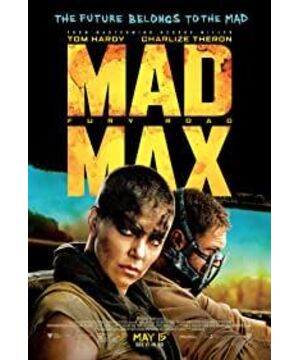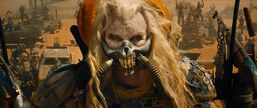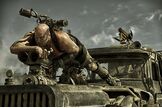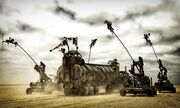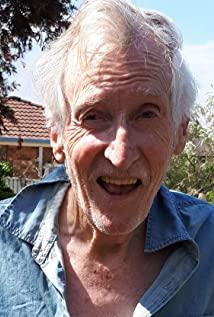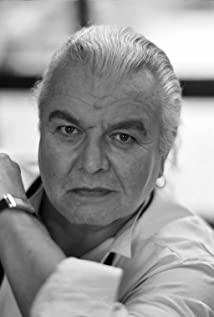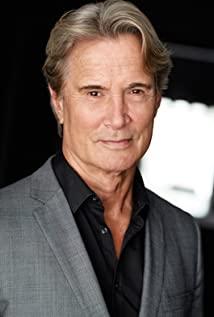Author: Kyle Buchanan / The New York Times
Proofreading: Issac
The translation was first published in "Iris"
The characters in the movie are very fascinating, the special effects are exciting, every frame is full of incredible power, and it makes people wonder how they did it.
"Mad Max 4: Fury Road" (Note: hereinafter referred to as "Road of Fury" set a new benchmark for action movies when it was released in 2015. Since then, no summer blockbuster has been able to compete with its turbocharged The originality is comparable.
Even the Oscar-winning director marveled at the spectacle of George Miller's opera style. "Parasite" director Bong Joon-ho said last year that the scale of the film made him cry, and Steven Soderbergh put it more bluntly: "I don't understand how they finished the film," he said. In an interview in 2017, he said, "And no one is exhausted."
So how did Miller and his actors survive and successfully tell this story?
Five years after the release of Fury Road, I asked 20 major crew members how the movie was made. Although the post-apocalyptic plot of the film seems simple-Highway Patrol Max (played by Tom Hardy) and the vicious commander Friosa (played by Charlize Theron) must cross the desert to escape the vengeful "immortality" The pursuit of "Joe" and his death squad-but the filming of the film is by no means easy.
"Like anything of value, it has complex emotions," Theron said. "I am very happy with the results we have achieved, but at the same time I feel a little uncomfortable. The trauma of some kind of "physical memory" from shooting this movie still exists."
"This is one of the craziest and most intense experiences in my life," said Lily Gio, and added Rossi Huntington-Whiteley, who was on the scene with her. "The whole filming process was completely two parts. The workload of the movie.” Hardy said: “This movie has made me irreversible changes.”
Below, the actors and crew show up to say how an almost impossible project became an Oscar-winning action blockbuster.
After producing three ever-expanding "Mad Max" movies-in 1979, 1981 and 1985-Miller let his own "Mad Max" series dormant until 1998 .
George Miller (Director): For a long time, every time I had the idea of making another "Mad Max" movie, I felt that I was powerless, but I clearly remember the turning point. When I was crossing the road in Los Angeles, a very simple idea suddenly appeared in my mind:
"If there is a "Mad Max" is a long chase, and McGoffin is a human being?" A month later, I flew back to Australia, thinking about this question repeatedly, when I landed, I gave Doug Mitchell called and said, "I have an idea."
Doug Mitchell (producer): When we first started our preparations, there were many candidate heroine names, (for example) Uma Thurman.
Miller: I remember that we also discussed Charlize. Her agent said she was not interested, but when I mentioned it to her more than ten years later, she said, "No one has ever told me!"
The original plan was for the series' starring Mel Gibson to continue to star in Max, produced by Twentieth Century Fox Pictures. Many expensive cars and sets were designed and produced for the film scheduled for March 2003.
Miller: Then the 9/11 incident happened and everything changed. We cannot insure, nor can we transport our vehicles. The whole project stalled.
Colin Gibson (art director): I was in Namibia in 2003 and received a call to stop spending money. I don’t know if (the film company) decided to transfer their money to the Iraq War, or because Mel Gibson’s wife sent me an e-mail asking me how many Muslims there are in Namibia, so as to judge whether she has any interest in family visits. What a lot of interest.
Miller switched to directing the cartoon "Happy Feet". When the film brought Warner Bros. into a box office success, he persuaded Warner Bros. to vote for "Furstery Road." Nevertheless, his long-time co-star Mel Gibson was already in his 50s and was regarded as a Hollywood outcast. Miller and Mitchell decided to find a new Max.
Mitchell: Meir was obviously entangled in some well-known troubles at the time, even though he was a very talented director, a talented actor, and a cute guy who sometimes suddenly showed a devilish side. But at that time he was already too old. Doesn't fit the role at all.
Zoe Kravitz (Jiao, one of Undead Joe’s five fertilisers): I tried reading the script with Jeremy Renner, and they hadn’t decided to use Tom at the time.
Miller: My feeling for Tom is the same as when Mel Gibson walked into the room for the first time: He has an exciting charm, an animal-like personal charm. You don't know what's going on in their hearts, but it's very attractive.
Tom Hardy (Max): At that time, I had not made a movie with so much action, and of course I had never participated in this level. I have never experienced the scale and volume of the entire natural environment and activity setting.
Charlize Theron (Freosa): I grew up watching the "Mad Max" movies-they are very popular in South Africa. I remember watching it with my dad when I was 12 years old. So my reaction at the time was probably, "Oh, of course I want to be in a "Mad Max". Are you kidding me?"
Lili Jiou (Xiao Neng, one of Undead Joe’s five fertilisers): The crew held a crazy, unconventional audition in Australia. They made us a group of 5 to 6 girls. During the audition process, most of them were improvisations. There was no rehearsal of the scenes in the movie, many of the things in the acting class. We don't know whether we will be selected, and in the end I was the only one selected in my group.
Kravitz: When I was interviewing, I was taken to a room where I was not allowed to leave. I sat there and read the script. This is one of the strangest scripts I have ever read because it is like a very long comic book.
John Hill (photographer): I didn't understand the progress of the whole thing, so I simply gave up. I thought to myself, "They have done the preliminary preparations for ten years, so let's start shooting."
After choosing the actors, Miller started in Broken Hill, Australia at the end of 2010-a mining town in the first two parts of the "Mad Max" series.
Theron: The most difficult moment was when we were in Australia two weeks before shooting, they cancelled the shooting plan.
Mitchell: During the trial shooting, Australia's climate pattern changed, and it has been raining in Queensland. This kind of weather has happened once in a century.
Gibson: Slowly, beautiful flowers bloomed in the desert. So we put everything back into the warehouse and then retreated again.
Gio: This is the first time I have experienced tremendous pressure when making a movie, and I am very sad. I said, "Is it really the weather? Did I get fired?"
Mitchell: We were completely defeated. How to continue?
But Miller refused to give up the movie.
Miller: I told them, "Let's wait a year to see if it gets dry here." But then the situation was not satisfactory, so I decided to shoot in Namibia, where it never rains.
Margaret Sikso (editor, Miller’s wife): It’s crazy to transport so many people and cars to Namibia. Who would do this? I think only George. He is not like other people at all-this is where I love him.
In July 2012, one and a half years after shooting in Broken Hill, the filming of Fury Road finally started in the desert of Namibia.
Gio: This is the craziest thing you can imagine, and the craziest thing I have ever experienced. First of all, it feels very real, which is why it looks so incredible. When making this movie, everyone was so excited about their role that walking around on the set was like walking around in that world. It's just like an anime reality show.
Nicholas Holt (Nacks, one of Undead Joe’s War Boys): Hugh, who plays the role of Undead Joe, hung up his photos on the stunt training ground where the War Boys were trained.
Hugh Keith-Byrne (Undead Joe): It's a wonderful thing to feel that everyone around me is wearing their costumes and living completely in them.
Courtney Eaton (small and weak, another childbearer): I have never acted before except in drama classes at school. When I was ready, they told me to stand still, and I turned around and said, "I don't understand what this means."
Kravitz: Many of us lack experience, but this is a very wonderful thing-we were originally very disappointed with the delay of this project. I don’t know what would happen if you worked with five long-time actresses. They might call their agent and say, "What the hell is going on?"
Rosie Huntington-Whiteley (Beauty, the leader of five births): Jason (Statham) and I have lived together for 10 years and I have never seen him have such an experience. I remember I explained to him, and he replied: Wow, "This is so different from the way I have worked."
Spectacular and grand action scenes are difficult to rehearse, but they have a real sense of weight and physics, which is almost absent in the spectacle of computer special effects production in the past 15 years.
Gibson: All actions must be real. You don’t feel the slightest excitement—at least not to me—as Van Diesel drags the three-ton safe and makes a perfect right-angle turn in the street. The whole basic principle is to make it as real as possible to make it as immersive as possible.
Hardy: When we started shooting seriously, it was actually very dangerous, or if there was no systematic training and expert preparation: stunt coordination, stunt team and protective frame, it would definitely be very dangerous.
Ben Smith-Peterson (stunt performer): In most movies like this, special effects are done gradually—perhaps one a week. But when making this movie, from the first day, you were doing stunts, and then one by one. This is the dream of a stuntman.
Holt: I remember one day when I came to the set, they tied me under the "Armed Transporter" (The War Rig, note: the car driven by Max and Freosa) with a sling.
Kravitz: Everything you see is happening in real, there is no green screen. I was really pulled out of the truck, and flew into the sky-I'm pretty sure it was Lili's husband Ben, grabbed me and pulled me out. They met when they made this movie.
Gio: We finally fell in love. My husband is a war boy.
Many young actresses were chosen to play the sex slaves Freosa tried to save. To help them better understand their roles, Miller invited an unexpected guest: Eve Ensler, the author of "Vagina Monologue," who worked with survivors of sexual violence in the Congo.
Eve Ensler: I am also surprised! George sent me some snippets of the script, solicited my opinion, and then we started to talk about the women who were going to be sex slaves and how they understood that kind of life experience. Finally, he invited me to Namibia to participate in a seminar with them. My task is to help actresses become confident in that world. I think it is extraordinary for him to involve me.
Kravitz: Although there are not many historical descriptions of those women in the dialogue, it is very important for George to understand what we are avoiding.
Huntington-Whiteley: The whole process of the seminar was very exciting. As a person who spent a happy childhood in a middle-class British family, this was a huge impact on my cognitive system.
Kravitz: We will do some exercises, such as writing to the person who captured us, which is very interesting and can give us empathy. I am very happy that we have had this experience because it is so crazy-long and chaotic-without this great foundation, we can easily forget what we are doing.
Gio: The level of George's concern is incredible to me. The situation could have been, "This is a Hollywood blockbuster, put on your bathrobe and go outside."
But the core character of this movie is the determined and resourceful Freosa.
Hardy: Charlize is probably the best protagonist in an action movie. In my opinion, this is well-deserved; not only because she is an extraordinary genius, but also because George realized from the beginning that it was time to put Mel The reason why the character passed to Friosa.
Theron: At first, Friosa was a very elegant figure. She had long hair and some African clay sculptures on her face. At that time Jenny Biwan hadn't joined the group, and the style of clothing felt like the space hero Barbarina. I am anxious.
Jenny Biwan (Costume Designer): I'm not interested in fashion, and I don't particularly care about people's looks-clothes must fit the stories they tell. Since Freosa is going on a long trip, she needs very practical clothes, and when I met Charlize, this was one of the things we discussed. What about her hair?
Theron: George always listens carefully to my opinion, it's incredible. I called him and said, "I don't know how she lives in those rooms full of machinery with these hairs. I think she needs to shave her hair and she needs to become a more androgynous and grounded character."
You know, he trusts me so much and even touches me a little bit. In this sense, I feel I have let him down.
The atmosphere on the set can be very tense. For most of the filming time of this blockbuster, the protagonist is crowded in a car.
Theron: The biggest factor driving the entire shooting process is fear. I am very scared because I have never done anything like this before. I think the most difficult thing between me and George is that he already has the look of this movie in his mind, and I desperately want to understand it.
Sikso: This is very difficult for actors, because there is no main camera, no scene in a closed space. Their performance is composed of tiny moments.
Hill: It's really difficult for them. Workers can be protected from natural factors such as cold, wind, and sand, but they cannot. They wear very special clothes.
Abi Li (Little Ben, one of the fertility people): Namibia seems to be very warm, but we filmed it in winter when it was very cold. Our actresses don't wear much clothes, and Lily also has hypothermia.
Gio: Some night scenes are very cruel, and there is a lot of dust. At the end of the day, your face will be covered with three inches of sand. I think in the first five months, we have done okay.
Kravitz: Finally, we all want to go home very much. It's been 9 months, and it's not the 9 months you spent in the rest car in the city. This is 9 months of living in the environment presented in the movie, and the surroundings are uninhabited. People are really starting to lose their minds a bit.
Miller: The filming is very difficult, unless you are very strict about safety, you will inevitably make mistakes. This is my biggest anxiety-this is what I have experienced before (a stuntman broke his leg), it will continue to torment you. I think I should pay more attention to the working conditions of some actors.
Theron: All young girls treat me as someone who can help them solve their problems. It’s not anyone’s fault-I only say this now because I know George and I have experienced this together with George, so I Will trust him completely. But I have also had this experience, when I didn't understand what the director wanted to do and fully believed in them, things turned into a mess.
Huntington-Whiteley: The atmosphere on the set is sometimes very tense. People have different personalities and conflicts. It is definitely fun to spend four months in the car with Tom and Charlize, their working methods are completely different.
Hardy: Because we need to deal with a lot of details, we have so little control in each new scene, and the shooting speed is so fast-the final edit is composed of some small story fragments-so we The movements are very fast and sometimes can be overwhelming. We must believe that movies on a larger scale are finally integrated.
Kravitz: When Tom had frustration and anger, so did Charlize, but I think he is the person who likes to vent his anger with George, which may be a bit unpleasant. But you know, to a certain extent, you can't blame him, because the actor will be asked a lot of questions, and there are still many questions that have not been answered.
Theron: Looking back, I didn't have enough empathy to truly understand how he (Tom) felt when he inherited the role of Mel Gibson. This is terrible! I think because of my own fears, we built a wall to protect ourselves, instead of saying to each other: "I know this is terrible to you, and it is also terrible to me. We should be nice to each other. ." In a strange way, we become like our characters: everything is for survival.
Hardy: I agree. In hindsight, I was a little weak in many ways. Both of us are under tremendous pressure. What she needs is a better and perhaps more experienced partner. This cannot be pretended. I think I am older and uglier now, and I can handle that situation better.
Li: In my opinion, the difficult natural environment really played a role during the shooting. The characters should be exhausted, they should be looking for strength. If it is shot in front of a green screen, I think all performances will be different, and we will do it in a controlled environment. In fact, this is indeed a huge mess, but it is also the reason why it is so wonderful.
As the filming work continues until the end of 2012, Jeff Robinoff, president of Warner Bros. Pictures, is ready to intervene.
Gibson: When you sit in Los Angeles and 600 people are wandering in the desert with the money you left behind, you feel a lack of control.
Kravitz: We are behind schedule. We heard that Warner was mad because we exceeded our budget.
Hill: The president of Warner Bros. Pictures flew to Namibia and tried on a gilded costume.
Miller: Jeff and Kevin Tsujihara are fighting over who will lead the company. He must stick to his position and show his superiors that he is an independent and capable manager. I know what he is going through, but it does no good to anyone. (Reporters could not reach Robinoff for comment.)
Mitchell: He told us, "No matter how much you shoot, the camera will stop on December 8th, and that's it." We haven't had the scene of the filming base yet, and the beginning and end of the movie are set there. We had to do post-production without these scenes. This is almost incomprehensible.
Sikso: I am worried about George. To tell you the truth, people don’t even know half of it. You should see what he was like at the end of the filming, he is so skinny.
Sean Harp (the electronic warrior, the war boy who wields the fire-spitting guitar): I saw his health deteriorate during those six months. In the end he looked utterly fragmented.
However, Miller cannot lose confidence: he must continue to find a way to complete the film.
Miller: A young director called me before filming his debut and said, "Do you have any suggestions?" I told him, "One day, you will feel completely crazy and feel what you did. It makes no sense. You just have to keep going." When he finished making that movie, he said to me again, "Remember what you said? What you didn't tell me is that this kind of thing happens every day." it is true.
Sikso: In that year, it was very difficult to edit a movie without a beginning or an end. I keep thinking, "What should I do? Do we add some narration to fill in all the gaps in the opening chase?"
Mitchell: Then Jeff lost his job, and Kevin Tsujihara took over. He decided later that year, "You know what, let's make this movie well. We need to finish the scenes that were shot at the base." So we brought back all the vehicles from Namibia, reconvened the team at the end of 2013, and brought Tom and Charlize to Australia. Without the blessing of the gods, the situation could be completely different.
Although Tsujihara allowed Miller to shoot for another month, company executives were still skeptical when he made the final cut.
Siksor: Warner always asks, "How much is the film cut short?" That's all they want to know. I have had enough. They are only concerned with keeping the length of the movie within 100 minutes, which I know is impossible.
Miller: When a person is directing a movie, they think about it every hour they are awake, even in their dreams. The problem is, if you are an executive of a film company, you tend to spend only 10 minutes thinking about it on Wednesday.
Sikso: The editing process of this film is very painful. I think Warner has no confidence in it, so the whole process is difficult to continue. In the end, George and I decided, "We have to finish this movie according to our own ideas. It doesn't matter if no one likes it." In the last four months, the movie really came together.
In May 2015, Fury Road premiered at the Cannes Film Festival and received rave reviews. At the press conference, Hardy apologized to Miller for feeling frustrated during the filming: "George can’t explain everything we saw in the desert. I know he’s great, but I don’t know he has. What a great one."
Hardy: When I realized how outstanding his achievements were, I felt that he was right to say that at the time.
Kravitz: As an actor, you may have made a lot of movies-some are good movies, some are not, you have to let go and continue working. But this time, we really put in blood, sweat, tears and time. If it is not a good movie, I might be defeated. This is one of the hardest things I have ever done in my life, but it is definitely worth it. If George wants me to shoot again, I will shoot again.
Sikso: When we finished this movie and became successful, it was our best year. We will tell each other the story of making this movie over and over again: How did we get to the other side? We are still surprised by this.
Miller: In Japan, a film critic talked to me about this movie. I was shocked by his interpretation of the subtext. It was very thorough. I said, "How many times have you watched this movie?" He replied, "Only once. Can I show you something?" He unbuttoned his shirt and made a red tattoo of Undead Joe's logo on his chest. . When you see something like this, you will be a little flattered.
"Furious Road" won a box office of 374 million U.S. dollars worldwide, and won 10 Oscar nominations including Best Picture and Best Director. Although it did not win the most important awards, the film won six awards in technical categories such as editing, art direction and costume design.
Miller: We never thought that Fury Road would be an Oscar-like movie.
Sixo: Half of the time I thought I was almost kicked out of this movie, and then I won the Oscar! What is this? We are just disappointed that George didn't win the prize, but in fact, to some extent, it was all his Oscars.
Hill: In the UK, a very cute person said to us, "I will vote for you, and I will tell you why: When I watch a movie, I think, "In 20 years, I will remember this movie. Is it?" Twenty years later, I will definitely remember "The Road to Fury"."
Many years after the film was released, the themes of women's empowerment, class inequality and environmental collapse are more meaningful than ever.
Mitchell: It is an extraordinary experience for a film that is so difficult to shoot, a film that may not be made, and won an Oscar in the end. It was also rated as one of the best films in ten years.
Miller: When your initial idea is understood by the audience, it will make up for all the hardships you have experienced in the process. A Swahili writer said this sentence: "The story has been told. If it is bad, it is my fault, because I am the storyteller. But if it is good, then it It belongs to everyone.” And the feeling that this kind of story belongs to everyone is the real reward.
View more about Mad Max: Fury Road reviews


